Economics of G20 – A World Scientific Reference (In 2 Volumes)
Editors-in-Chief : John Whalley (Western University, Canada) & Manmohan Agarwal (Research and Information Systems for Developing Countries, India)
Introductory Offer available till Jun 30, 2020
ISBN : 978-981-121-471-4
Pages : 472
Vol 1: Developing Countries and the Need for G20
Vol 2: How Developing Countries can Achieve Sustainable Development Goals
The G20 (or Group of Twenty) is an international body established to manage the global economy, and for the first time, includes developing countries.
This reference set examines the issues facing developing countries and studies the role that the G20 can play in light of continuing challenges and objectives to meet the UN’s Sustainable Development Goals (SDG).
Volume 1 sets out the state of the world economy and the intricate functions of the G20 in policy coordination and economic cooperation. It also deals with the interests and strategies of some developing country members of the G20. These chapters answer questions such as what the country expects from the G20, the strategies adopted to achieve its ends, the extent to which it sees itself as a representative of developing countries in its region and how does it seek to represent them.
The G20 has also centred its efforts around helping countries achieve the UN Sustainable Development Goals (SDGs). Volume 2 concentrates on trade issues and the prospects of achieving the SDGs. In this context, it examines whether the SDGs themselves are a desirable goal in terms of what the nature of development is which underlies these goals.
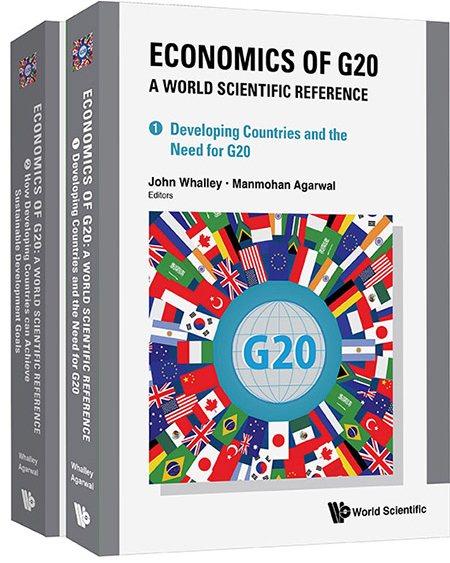
Content
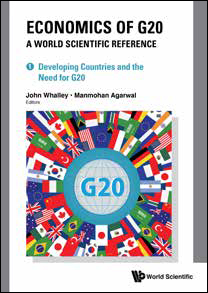
Volume 1: Developing Countries and the Need for G20:
State of the World Economy and the Role of the G20:
- G20 and International Economic Coordination: Lessons from the Inter-War Years
- The Economic Situation of Countries in Sub Saharan Countries: What Can be Done by the G20
- Latin America’s Economic Performance: What Ails it?
- What Realistically Can the G20 Contribute to Development
- The 2008–09 Crisis and Developing Countries
Country Perspectives:
- Argentina, G20 and Beyond: The ‘Outsider’ SAGA
- Indonesia’s Role in the G20: Assessing the Critical Link in the ASEAN Chain
- Saudi Arabia and the Millennium Development Goals
- Turkey, G20 and Global Governance: Aspiration and Limitation
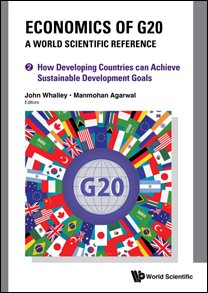
Volume 2 : How Developing Countries can Achieve Sustainable Development Goals:
Trade:
- Which Way Forward? The Role of Free Trade for the Development of the World Economy
- China and Global Governance
SDGs:
- Prospects for Achieving the Sustainable Development Goal
- Guardian of the Common Good or National Power Projection? What Role for the G20 in the Global Partnership for Sustainable Development?
- The G20 and the 2030 Agenda for Sustainable Development
Health:
- Achieving Sustainable Development Goal 3 in the Indian Context — The Policy-Action Incoherence
- Universal Health Care and Africa: Key Policy Challenges and Role of G20
Education:
- The Goals Concealed in the Goal Revealed: Taking Forward Global Education from SDG 4
- Public Investment in Education and Out of School Children: The Case of India in South Asia
About the Editors-in-Chief
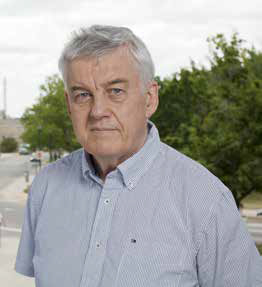
John Whalley is a Professor of Economics at Western University, a Fellow of The Royal Society of Canada, Fellow of The Econometric Society, Foreign Member of the Russian Academy of Natural Sciences, Fellow of the Canadian Economics Association, Research Associate at the National Bureau of Economic Research (NBER), Coordinator of Global Economy Group at the CESifo (Germany) and Distinguished Fellow at the Centre for International Governance Innovation (CIGI, Canada). Professor Whalley is ranked No.1 in Canada among publishing economists in the RePEc rankings. He holds a BA in Economics from Essex University (1968), and an MA (1970), M.Phil (1971) and a Ph.D. (1973) from Yale University. He won the Hellmuth Prize for Achievement in Research, and also is the 2012 Killam Prize Winner.
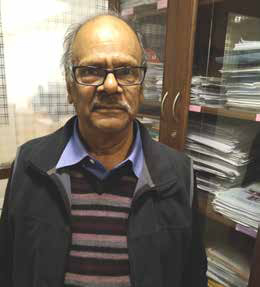
Manmohan Agarwal is the Reserve Bank Chair at the Centre for Development Studies at Thiruvananthapuram, Kerala, India. Earlier, he had retired as a professor from Jawaharlal Nehru University, New Delhi, India, where he taught for almost 30 years. Subsequently, he was a senior fellow at the CIGI at Waterloo, Canada, where he worked on issues of the world economy including the G20 and South–South cooperation. He is also a Senior Fellow at Research and Information Systems for Developing Countries, New Delhi, and an Adjunct Senior Fellow with the Institute of Chinese Studies. He also worked for a number of years at the World Bank and the International Monetary Fund. His research has been mainly in the area of International Economics and Development Economics.






